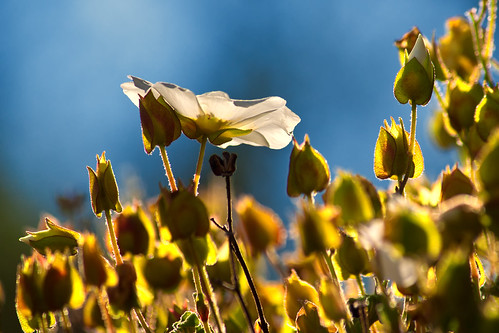by Gabi Reigh

Who reads poetry these days? Going by the sales figures of poetry books, it would be fair to conclude that it is only a small minority of people. This is understandable, in many ways; when we find space in our frenetic lives to read, we look for something that will entertain us, make us flick through pages at speed, a thriller or crime novel that will get our pulse racing. Poetry forces us to pause, to think deeply, to confront emotions and hidden parts of our minds that we would rather keep at bay.
But perhaps this, above all else, is what we need. The Romantic poet William Wordsworth once wrote that poetry is ‘emotion recollected in tranquillity’. In other words, reading poetry can help us understand ourselves, our feelings and our relationship with the world in a way that a fast paced thriller or romantic novel could never do. For one thing, the process of reading poetry quietens the mind as it has to slow down, immerse itself in a world transformed by unfamiliar images, disconnect itself from everyday anxieties and contemplate something greater than itself.
I have been thinking a lot about the power of poetry this year as I have been translating the collection ‘Poems of Light’ by the Romanian poet Lucian Blaga. Written in 1919, it is one of the most important works of 20th century Romanian literature. Blaga was a philosopher as well as a poet and these verses are suffused with his spiritual outlook on life, the natural world and human relationships.
As I was translating the poems, I was struck by how much they chime with contemporary ideas about mindfulness, despite being one hundred years old. Blaga’s tranquil contemplation of the world seems particularly remarkable as the poems were published just after the end of the First World War, one of the bloodiest periods of modern history. But rather than being defeated by suffering, the poet embraces the world and all the beauty it has to offer. His most famous poem, ‘I do not crush the aura of wonder of the world’, speaks of how he does not want to ‘kill with thought’, the ‘mysteries’ of the world that he meets in ‘flowers, in eyes or lips or graves’. In other words, he does not want to be a destructive force in the universe or see himself as apart from the natural world. The 18th century poet and mystic Novalis claimed that ‘poetry heals the wounds inflicted by reason’, meaning that it can serve as an antidote to our tendency to be overly analytical or critical. Instead, Blaga advises that we need to recognise our spiritual power and commune with the beauty of the world around us:
‘I, with my light, feed the world’s mystery’.
Mindfulness teaches us to be present in the moment, to pay attention to the world around us rather than racing through it on autopilot. Reading poetry can help us to do that, drawing our attention to the things around us that we often pass by or take for granted, unobservant. Therefore, in the poem ‘Silence’, the quiet of the night becomes imbued with a real presence, the epitome of mindful awareness, as the poet writes that:
‘There is so much silence all around that I think I can hear
Moonlight crashing against the windows.’
In other poems, nature comes alive, bringing to light things that we are not always mindful enough to notice, such as in ‘Spring’ where ‘the eyes of roses open’, ‘shivering awake’ from their long winter sleep. The natural world is also a reminder that however insurmountable our problems might seem, they are insignificant when put into the context of a universe that will carry on without us for an eternity. Blaga finds relief in this idea, arguing in the poem ‘To the stars’ that:
‘Today, I drift
Like an orphaned soul
Racing towards everywhere – and nowhere.
A single thought is my light and my strength:
Oh, stars, you too, know not your destination:
Yet perhaps that’s how you conquer endlessness!’
 One of the ways that reading poetry can heal us is by reminding us that we are not alone, that our doubts and sorrows have been felt by others before. The Welsh poet Dylan Thomas wrote that poetry teaches you that ‘your bliss and suffering is forever shared and forever all your own’. There is often no easy solution to our problems and there seems to be no relief from our daily anxieties. However, in the poem ‘I await my sunset’, Blaga suggests that by contemplating these problems in a mindful way, we will not be broken by them, but they will help us grow by revealing something valuable about our nature. This hidden power that might emerge from our depths when we are tested by suffering is described when he asserts that:
One of the ways that reading poetry can heal us is by reminding us that we are not alone, that our doubts and sorrows have been felt by others before. The Welsh poet Dylan Thomas wrote that poetry teaches you that ‘your bliss and suffering is forever shared and forever all your own’. There is often no easy solution to our problems and there seems to be no relief from our daily anxieties. However, in the poem ‘I await my sunset’, Blaga suggests that by contemplating these problems in a mindful way, we will not be broken by them, but they will help us grow by revealing something valuable about our nature. This hidden power that might emerge from our depths when we are tested by suffering is described when he asserts that:
‘I know that I too carry
In my soul, many stars, and many milky ways,
Miracles of darkness.’
Instead of revolting against this psychological pain and becoming its victims, we must allow it to shape us for the better so that we can access the inner strength that can only be attained through contemplation. This, in the end, is the healing and promise of tranquillity that poetry can bring:
‘I await my sunset, night and sorrow,
To rob my sky of sun
Until it breeds with stars
My stars,
Which I have never yet seen.’
More information about this poetry collection can be found at Interbellum Series and on Instagram, where it is possible to read illustrated verses from the poems. ‘Poems of Light’ by Lucian Blaga is available from Amazon.
I do not crush the aura of wonder of the world
I do not crush the aura of wonder of the world
And do not kill
With thought, the mysteries that on my way
I meet
In flowers, in eyes, or lips or graves.
The light of others
Strangles that enchantment hidden
In the depths of darkness
But I, with my light,
Feed the world’s mystery
And like the moon with its white rays
Does not diminish, but, trembling,
Magnifies the night’s secret,
I too, bejewel the dark horizon
With long tremors of holy mystery,
And all that is unknown
Becomes unknowns
Under my eyes
Because I love
The flowers and eyes and lips and graves.
I await my sunset
In star dappled nights
I bathe my gaze
and I know that I too carry
in my soul many stars, and many milky ways,
miracles of darkness.
But inside me there is too much sun-
so, invisible, they lie in wait
for my day to set,
to seal the eye of my horizon.
I await my sunset, night and sorrow,
to rob my sky of sun
until it breeds with stars,
my stars,
which I have never
yet seen.
To the stars
With a sea of urges and blind aspirations
Inside me
I bow down, stars, to your light,
And fires of adoration burn in my eyes
Like sacrificial flames.
Tremors, from your faraway country, kiss
My body with chilled lips of ice
Until it turns to marble, asking:
What worlds are you travelling to and what abyss?
I wander,
Today, an orphaned soul
Racing towards everywhere – and nowhere.
A single thought is my light and strength:
Oh, stars, you too, know not your destination
Yet perhaps that’s how you conquer endlessness!
Silence
There is so much silence all around that I think I can hear
moonlight crashing against the windows.
A foreign voice
awakes inside my breast,
singing a longing which is not my own.
They say that ancestors, who died before their time,
with young blood in their veins,
with great passions in their blood,
with living sun in passions,
return,
return to live
inside us
their unspent lives.
There is so much silence all around that I think I can hear
moonlight crashing against the windows.
Oh, who knows, my soul – in whose breast you too will sing, in centuries to come,
on sweet strings of silence
on a harp of darkness,
your smothered longing and your broken joy of life? Who knows? Who knows?
Latest posts by Admin (see all)
- The Necessity of Mindfulness: Seeing Things as They Really Are - October 6, 2021
- How Mindfulness Saved My Life - August 8, 2021
- Mindfulness: A Bird’s-Eye View - July 11, 2021